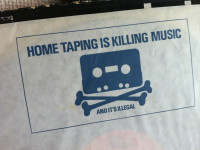The Canadian government tabled Bill C-100 yesterday, the bill to implement the Canada-US-Mexico Trade Agreement. I will have future post on the key provisions, which include new criminal provisions on trade secrets and tampering with rights management information. The bill also features several provisions related to copyright term but notably does not touch the current general copyright term of life of the author plus an additional 50 years. There are several new terms included in the bill with extensions for anonymous works, performances in sound recordings, sound recordings, and cinematographic works. The bill expressly states that none of the extensions are retroactive which means that the works that are currently in the public domain will remain there even after the new terms are established.
News
No Mandated Netflix Cancon Payments: Shaw Argues Success Lies in More Regulatory Flexibility in BTLR Submission
Yesterday’s post on the still-secret broadcast and telecommunications review submissions obtained under Access to Information focused on Bell, which proposed extensive new regulations for Netflix that would result in hundreds of millions in payments that could spark a trade battle with the United States. The major Canadian communications companies are not united on this issue, however. While there are similarities on wireless (most oppose mandated MVNOs), the broadcast perspectives differ significantly. This post reveals some of the details in Shaw’s submission to the BTLR, also obtained under ATIP.
Self-Serving in the Extreme: Bell’s Broadcast and Telecom Submission to the BTLR Revealed
The government’s expert panel on broadcast and telecommunications law reform is expected to release its preliminary report on the results of its public consultation next month. The panel has remarkably kept the submissions to the consultation secret, rejecting an open and transparent policy making process that the government insists is essential to good policy development. I filed an Access to Information Act request for some of the more notable submissions (some have been made available and are posted online by the FRPC). An interim release of that request just arrived in my inbox and I’ll have a couple of posts on point over the next few days.
The “Bulte Report” Redux: Canadian Heritage Committee Releases Embarrassingly One-Sided Remuneration Models Study
The Canadian government announced its plans for a copyright review in December 2017, tasking the Standing Committee on Industry, Science and Technology with the review. That report has been in the drafting stage for several months and is expected before the summer. In an effort to dampen concerns that Canadian Heritage would play a diminished role in the review, the responsible ministers asked the Industry committee to ask the Heritage committee to conduct a review on remuneration models for artists and creative industries. The formal request asked the Standing Committee on Canadian Heritage to “call upon the expertise of a broad range of stakeholders impacted by copyright to ensure a holistic understanding of the issues at play.”











